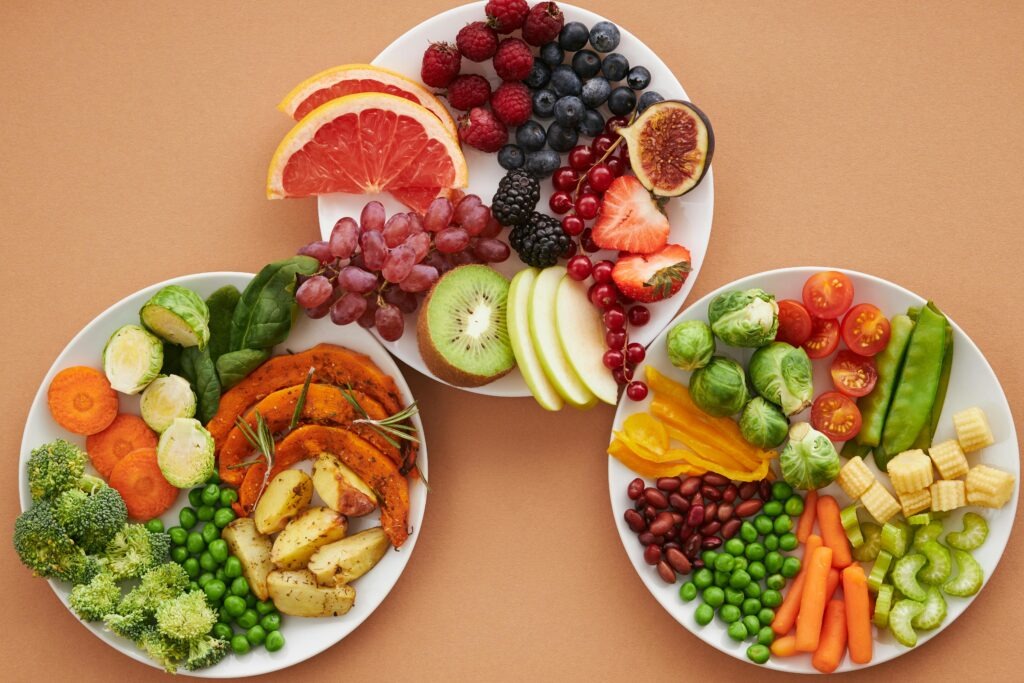 Image Source: The Dietologist
Image Source: The Dietologist
Pregnancy is a time of transformation, anticipation, and careful choices—especially when health conditions like uterine fibroids enter the picture. For expectant mothers navigating this dual challenge, nutrition becomes more than just a support system—it’s a lifeline. In a recent advisory, Ankurita Gupta, a dietician at Apollo Cradle and Children’s Hospital in Indirapuram, New Delhi, shared four essential dietary tips tailored for pregnant women with fibroids, offering a roadmap to boost maternal and fetal health while managing fibroid-related symptoms2.
1. Power Up with Antioxidants and Vitamin-Rich Foods
The first recommendation is to embrace foods rich in antioxidants, beta-carotene, and vitamin C. These nutrients play a vital role in reducing oxidative stress, supporting immune function, and aiding tissue repair—especially important for women with fibroids, which can cause inflammation and discomfort during pregnancy.
Leafy greens like spinach, kale, and broccoli are packed with folate, iron, and calcium—critical for fetal development and maternal strength.
Citrus fruits such as oranges, lemons, and grapefruits deliver a strong dose of vitamin C, which helps in collagen production and maintaining healthy connective tissues.
Beta-carotene-rich foods like carrots, sweet potatoes, and mangoes support fetal growth and vision development.
Berries—blueberries, strawberries, and raspberries—offer a potent mix of antioxidants that may help reduce inflammation linked to fibroid symptoms2.
2. Add Fibre to Balance Hormones and Ease Digestion
Fibroids are often influenced by estrogen levels, and a fibre-rich diet can help regulate hormonal balance by supporting healthy estrogen metabolism. Fibre also combats constipation—a common pregnancy woe exacerbated by fibroids pressing against the digestive tract.
Whole grains like quinoa, brown rice, and oats are excellent sources of fibre and complex carbohydrates.
Legumes such as lentils and beans provide protein and fibre, supporting both digestion and energy levels.
Fruits like apples and pears offer soluble fibre that aids in gut health and keeps blood sugar levels stable2.
Quinoa, in particular, earns a special mention for being a “smart carb”—gluten-free, high in protein, and rich in magnesium and iron. It’s a versatile grain that can be incorporated into salads, soups, or served as a side dish.
3. Limit Caffeine to Reduce Risk and Discomfort
While a morning cup of coffee might be a cherished ritual, moderation is key during pregnancy—especially for women with fibroids. Excess caffeine can exacerbate symptoms like pain and heavy bleeding, and may increase the risk of complications.
The recommended limit is 200 mg of caffeine per day, roughly equivalent to one 12-ounce cup of coffee.
Alternatives like decaffeinated coffee, herbal teas, or warm lemon water can offer comfort without the risks2.
4. Choose Herbal Teas Wisely for Relaxation and Uterine Support
Herbal teas can be soothing and beneficial, but not all are safe during pregnancy. Gupta recommends a few options that may help with nausea, digestion, and uterine health:
Ginger tea is known to ease morning sickness and improve circulation.
Peppermint tea supports digestion and may relieve bloating.
Rooibos and raspberry leaf tea are rich in antioxidants and may promote uterine tone.
However, she cautions that pregnant women should always consult their healthcare provider before introducing herbal remedies, as some herbs may interfere with pregnancy or medications2.
Why Nutrition Matters More with Fibroids
Uterine fibroids are non-cancerous growths that can vary in size and number. During pregnancy, they may cause complications such as pain, bleeding, or pressure on surrounding organs. A nutrient-rich diet not only supports fetal development but also helps manage these symptoms, making pregnancy safer and more comfortable.
Gupta emphasizes that “a balanced diet plays an important role in supporting both maternal and fetal health. A nutrient-rich diet not only promotes overall well-being but also helps manage fibroid-related symptoms”.
Final Thoughts: Food as a Gentle Healer
Pregnancy with fibroids may bring unique challenges, but the right foods can offer powerful support. From leafy greens to quinoa, from mindful caffeine habits to herbal teas, these dietary choices are more than just meals—they’re tools for resilience, comfort, and care.
As always, these tips are meant to complement—not replace—medical advice. Expectant mothers should work closely with their healthcare providers to tailor a nutrition plan that suits their individual needs.
Sources: MSN Health:, Hindustan Times Lifestyle, Dietburrp
Advertisement
Advertisement



